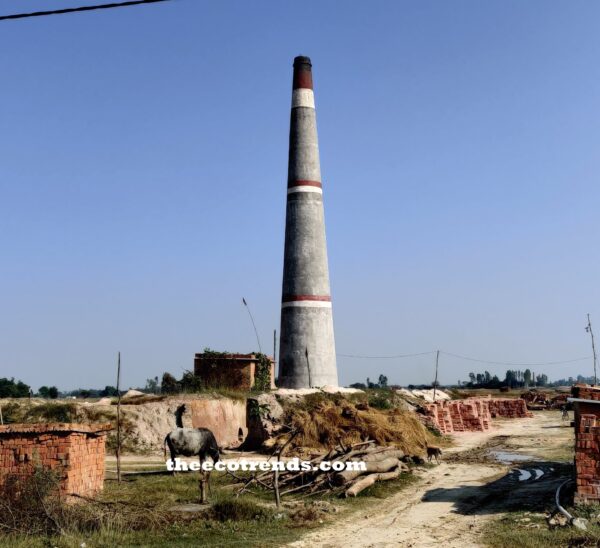New Technologies are developed for improving and increasing industrial production. Similarly, new projects are formulated for providing energy to those industries.
Industries use natural resources as raw materials. The industrial processes give off some unnecessary substances that are released into the atmosphere, on the earth or into water bodies. These substances often join local food-chains and cause ailments and sufferings to the living world.
The emissions that join the atmosphere tend to cause acid rain, and Global Warming. These cause many types of occupational as well as other diseases. Thus one side the economy is improved through industrial production but on the other side, the health of environment and its components is risked through pollutants released by them. Here, it can be concluded that- though the economic growth is important for us, we cannot risk our lives for it.
A Cost and Benefit Analysis is essential to be done for any work pertaining to development. Economic Policies should be formulated in such ways as to ensure development while controlling pollution.
The total cost of controlling the pollution and benefits from industrial production are assessed. In some cases, it has been observed that the cost of production remains far less than the cost of losses to the environment.
Here, it is felt that the economic policies should be formulated well in advance before setting up of an industry and it is seen that production is ensured while maintaining and managing the health of the environment.
It is a general thought that industries are major contributors to the pollution loads on environment. As such, they are thought to have major share of responsibilities in abating pollution and contributing in a big way to a sustainable environment.
In India and in other countries of the world rules have been framed for industries to obey in view of keeping a healthy environment. Under law, all the industries, enterprises, business houses and corporations across the world, have Corporate Social Responsibilities under which they are held responsible for maintaining a healthy environment so as to facilitate general well being of the local society of which they too are considered to an integral part.
According to the law of the land every industry has to submit Environment Management Plant for approval to the Government before setting up.
On the other hand it has to submit environment monitoring report as per the fixed standards for emissions and affluent. The state Pollution Control Board is the regulatory authority for all the industries. There are rules for every type of industry to be obeyed by it in view of environmental balance and safety to the society.
The Environment (Sitting for Industrial Projects) Rules, 1999 lay down detailed provisions relating to areas to be avoided for siting of industries, precautionary measures to be taken for site selecting as also the aspects of environmental protection which should have been incorporated during the implementation of the industrial development projects.
All the industries have been directed by the government to install pollution control devices. However, many industries have been reported from time to time that they either do not have such devices in them or if they have, the devices have been reported to be non-functional or old. Many industries though they have got the pollution control devices fitted with them they often do not operate these devices due the cost of the consumption of energy which is to affect the cost of production.
The Central Pollution Control Board (CPCB) has developed National Standards for Effluents and Emission under the statutory powers of the Water (Prevention and Control of Pollution) Act, 1974 and the Air (Prevention and Control of Pollution) Act, 1981.
These standards have been approved and notified by the Government of India, Ministry of Environment & Forests, under Section 25 of the Environmental (Protection) Act, 1986. Till now, Effluent standards for 37 categories of industries and Emission Standards for 31 categories of industries have been evolved and notified besides standards for ambient air quality, ambient noise, automobile and fuels quality specifications for petrol and diesel. Guidelines have also been developed separately for hospital waste management.
Role of Environmental Organisations
An environmental organization is a group of likeminded people that seeks to protect, analyze or monitor the environment against misuse or degradation from human forces.
Environmental organizations can be global, national, regional, or local. Some of the issues of environment that are of interest to environmental organizations are pollution, waste, resource depletion and increasingly on climate change.
Green politics is a political ideology which places a high importance on environmental goals and Green parties have been formed to implement environmental policy at a government level.
Non-Government Organisations that work in the field of environment across the globe and the civil societies that work in the field of the Protection of Environment and development in general and for the control of atmospheric pollution in particular, have the power to influence individual behaviour and the institutions that are involved in the control of atmospheric pollution and protection of environment.
They can support the implementation of the Global Strategy on control of global problems related to different areas including atmospheric pollution.
There are more than 10,000 NGO’s in India ranging from National Agencies to local groups. The Ministry of Environment and Forests (MOEF) is increasingly extending support to NGO activity and routing many of its own programme through them.
In brief, NGOs both local and International perform following roles for the protection and preservation of environment –
They canlead grass-roots mobilization and advocate that the pollution of atmosphere should be placed on the public agenda;
- NGOs can support the wide dissemination of information on the control and prevention of atmospheric pollution.
- They advocate and support pollution control programmes and health education campaigns for children;
- They can monitor and work with other stakeholders such as private sector entities and may contribute to putting knowledge and evidence into practice.
Environmental NGOs across the world fight for varieties of environmental causes and seek collaborations with governments and development organizations. Some of those causes for which Environmental NGOs need cooperation, as per the United Nations are listed below-
1. For getting the access to technical or managerial resources;
2. To gain legitimacy or recognition;
3. To gain institutional support
4. For adapting a programme pertaining to environmental protection and pollution control to their areas;
5. To acquire appropriate solutions to development problems;
6. To enhance people’s participation in government programmes; and
7. To promote greater accountability and transparency, and to promote reforms in public services systems.
9. Creating awareness among people on current environmental issues and their solutions.
10. For being involved in the protection of human right to have a clean environment and for conducting participatory rural appraisal.
12.To communicate information regarding different environmental problems through different media like newsletter, brochures, articles, and audiovisuals, etc.
13. To extend help to the village administrative officials like Village – Panchayat in the preparation, application and execution of projects on environmental protection.




